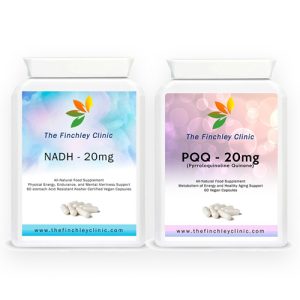Feeling more tired than usual? Low on energy? It’s a common thing, of course, but sometimes in our hectic modern world, it’s easy to overlook what we can – and ought – to do to recharge our body’s batteries correctly instead of simply going at the same ‘speed’ all the time. What ought we be putting time aside for to help recharge and improve our energy levels? The answer includes behaviours, activities, diet and – possibly – energy-boosting supplements…
Tips to boost your energy
So, how to help top up your energy levels when they’re low? The following are essential tips:
- Get proper rest – adequate physical rest (and mental rest; see below) is absolutely critical for revitalising the body and ensuring it’s able to provide you consistent energy
- Sleep hygiene – tied up with rest is, of course, decent sleep, which is crucial for replenishing energy; inevitably, sleep deprivation and insomnia have detrimental effects on energy levels (if you are suffering from the latter, it’s worth your time looking into the different ways to address it)
- De-stress – again, related to rest and sleep, de-stressing at the end of the day or, rather, achieving both physical and mental relaxation is important; for instance, you might want to try meditation
- Physical exercise – it may sound counter-intuitive (going out walking, running, cycling and so on to boost your energy levels), but keeping fit is important for good physical and mental health and ensuring your body is working as it should, therefore, in turn, ensuring the body is able to naturally replenish its energy levels.
Dietary tips for increasing energy levels
While seeking to achieve the right level of rest, relaxation, sleep and exercise, maintaining a healthy, balanced diet that includes energy-boosting nutrients is equally as important. That doesn’t mean reaching for a highly-sugared energy drink every time your energy’s waning – instead, you’re advised to eat foods comprising nutrients whose ingredients include minerals, nutrients and vitamins that deliver high-quality, sustainable energy. The following are all good examples:
- Beetroot and beetroot juice – terrific for folate (Vitamin B9), manganese and Vitamin C, beetroot contains the antioxidant phytonutrients that are betalains, ensuring they’re great for detoxing; energy-wise, it’s been found that, among athletes’ severe-intensity exercise, consumption of beetroot juice supplements helped increase stamina and energy by as much as 15%
- Nuts – specifically, almonds, cashew nuts, hazelnuts, macadamias, pecans, pistachios and walnuts are rich in good protein and the bioavailable chemicals that are carotenoids, flavonoids, phenolic acids and phytosterols; all of which aid physical and mental health and so, in turn, support energy levels
- Quinoa – a gluten-free grain packed full of protein, fatty acids, antioxidants and amino acids (lysine, methionine and cysteine), as well as the minerals folate, magnesium and manganese, quinoa’s brilliant for energy support
- Spinach – an undoubted superfood, this green vegetable is chock-full of vitamins (A, C and K) and excellent nutrients, including calcium, iron, potassium and a highly bioavailable form of magnesium; the latter of which, studies have concluded, plays a role in more than 300 metabolic functions, such as generation and storage of cellular energy
- Sweet potatoes – carbohydrate-lovers are in luck because these vegetables are a great low-glycaemic energy-driving option, which means they can help reduce blood sugar levels, weight and the risks of developing heart disease and type 2 diabetes; they’re also rich in manganese, which aids in the breaking down of other nutrients in the body to generate energy
- Chocolate – in mentioning chocolate here, we’re not suggesting sweetened chocolate bars, but dark chocolate; the cocoa in the latter comprises flavonoids that aid blood flow in the body, as well as brain function, thereby supporting mood management and balancing energy
- Coffee – finally, while it’s widely known consuming too much coffee can have negative effects on the body, it makes it into our energy-supplying good books thanks to the rapid energy boost and increased mental alertness that caffeine can deliver, as well as the fact it’s full of antioxidants.
It may surprise you to learn, too, that those who enjoy drinking coffee also tend to enjoy longer-term energy, improved mood and generally better health, owing to its ability to help fend off cellular degeneration.
Energy supplements
Now, while it’s easy to buy a jar of coffee or a bar of dark chocolate, some may find it less easy, on a regular basis, getting hold of some of the other dietary suggestions mentioned above (and other energy-boosting foods you may research yourself). In which case, you might want to look at supplement options; check out the ‘Energy Boosters’ product page here at The Finchley Clinic – all of our offerings are derived from entirely natural sources and come well-recommended.
Indeed, among them you might be interested in the NADH and PQQ Mitochondrial Support Kit, which combines NADH Delayed Release capsules (20mg) with PQQ (pyrroloquinoline quinone) capsules (20mg). The active coenzyme form of Vitamin B3, NADH provides energy to the brain, nerves, muscles and the heart; not least because it’s is absolutely crucial to the Krebs cycle, which occurs in all cells in order to release stored energy. For its part, like NADH, PQQ is an enzyme cofactor that promotes the growth of mitochondria in cells, ensuring it’s also crucial to energy generation and release. In addition to helping boost energy levels and stamina, it’s a powerful antioxidant, too, and may improve the quality and duration of sleep.

